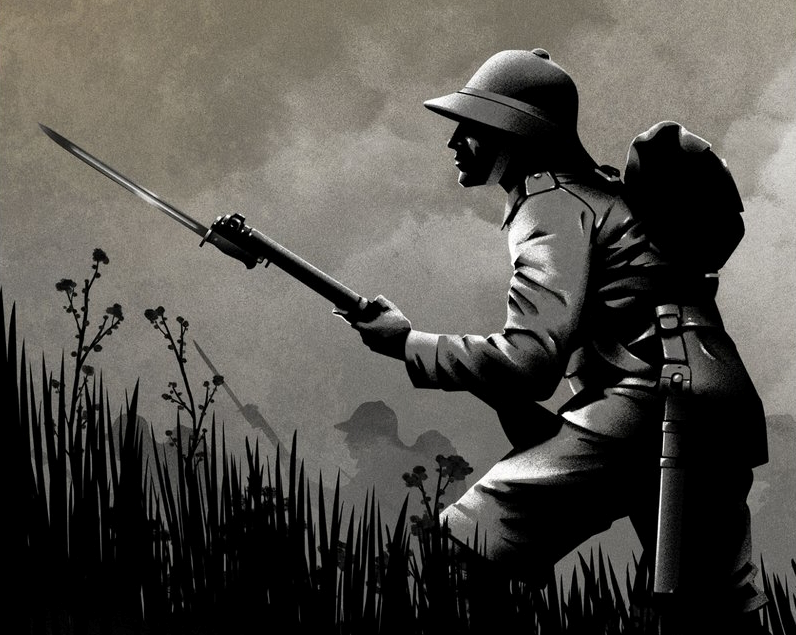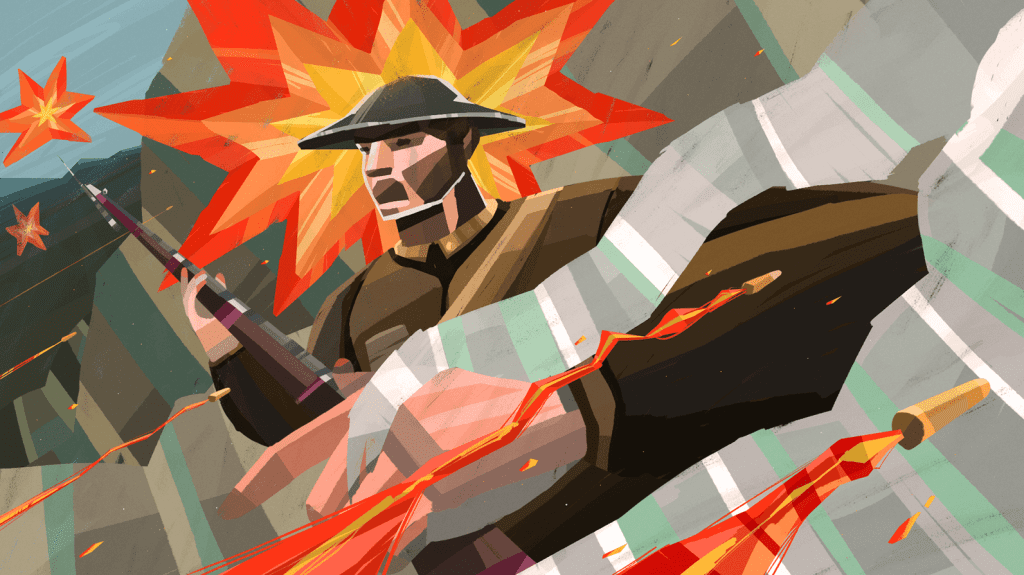
Law of war is that part of International law that manages the commencement, conduct, and end of the war itself. Its point is to restrict the endured agony caused to warriors and to the people who might be portrayed as the casualties of war—that is, the non-combatant regular folks and those who aren’t, at this point, ready to partake in warfare.
In this way, the injured, the wiped out, the wrecked and detainees of war likewise require assurance or some sort of protection from the law. The law of war has likewise been taken to incorporate constraints set upon states on their utilization of outfitted power of the armed force. No arrangement of law can forestall a state or even a person from utilizing power in self-preservation, though it has a few impediments. Foundations of the global law of war are in varied form of Law by Treaty, Law by Custom and commencing hostilities.
Geneva Conventions
The term ‘War’, left with little essentialness after the United Nations Charter of 1945, in article 2(4), stated that ‘the threat or use of force against the territorial integrity or political independence of any State, or in any other manner inconsistent with the purposes of the United Nations‘. Moreover, all the Geneva Conventions are applicable to armed conflicts, regardless of whether they are formally called wars. In the Falkland Islands struggle in 1982, for instance, the United Nations Security Council, in Resolution 502, censured the Argentine intrusion of the islands as a break of the peace, despite the fact that neither Argentina nor the United Kingdom had proclaimed war.
The rules of war or international humanitarian law, as it is known officially, have a lot of global standards that set out what can and can’t be possible during an armed conflict. The principle reason for international humanitarian law (IHL) is to keep up some mortality in outfitted armed conflicts, to sparing lives and decreasing misery. To do that, IHL manages how wars are battled, adjusting two angles: debilitating the foe and limiting torment. The standards of war are universal. The Geneva Conventions (which are the core component of IHL) have been confirmed by every one of the 196 states. Not many global arrangements have this degree of sponsorship.
Hague Conventions
There were officially two Hague conventions; first in the year 1899 and then in 1907. The Hague Conventions were among the first principal statements for the laws of war and atrocities in the structure of secular international law.
The 1899 Hague Convention laid down the following points:
- Pacific Settlement of International Disputes – Incorporated the formation of the Permanent Court of Arbitration.
- Laws and Customs of War on Land – Contains the laws to be utilized in all war ashore between signatories. It itemizes the treatment of detainees of war and incorporates the arrangements of the Geneva Convention of 1864.
- Adaptation to Maritime Warfare of Principles of Geneva Convention of 1864 –Accommodates the assurance protection of hospitals ships and involves them to treat the injured and wrecked mariners of every single contentious party.
The Second Hague Conference, in 1907, instigated a few significant progressions from the 1899 Convention. The Second Peace Conference was held from 15th June to 18th October 1907. It was called at the recommendation of U.S. President Theodore Roosevelt in 1904, but it was conceded due to the yet another war between Russia and Japan.
Effects of War

It is plausible to assess monetary expenses of the war, cost of the military, and similar warfare activities that follow. Be that as it may, it is more challenging to appraise the psychological expenses of war – the agony of death, enduring the suffering throughout and after the war, dreaded fear and incapacity. War can leave fighters and regular people damaged for the rest of their lives. Recently, post-traumatic stress syndrome is all the more recognised and acknowledged; however putting an expense on how war adversely influences those included, is difficult to do.
Children stuck in between such horrifying conditions, with the influence by war, are frequently recognised as being brutalised and the consequence is their harmed and distorted psychologies and morality and reduced humankind. The United Nations Children’s Fund has expressed that ‘time does not heal trauma‘ for a huge number of such kids, who are regularly depicted as the lost generation. The medical literature is loaded with comparably clearing explanations that need legitimacy and are pathologizing and stigmatising. In addition, individuals being studied have not given assent for their emotional well-being to be externalized in public and portrayed as undesirable, which brings up moral issues yet again.
Addressing the standard way of thinking that interstate warfare is on the downhill; while war has become less deadly, it has not really become less extreme. This brings up issues about basic understandings of wide patterns in strife recurrence and seriousness just as inquiries regarding best practices for estimating struggle severity.
Conclusion
Setting aside the genuine human cost, war has additionally resulted in a lot of monetary expenses – loss of structured buildings, the framework of various infrastructures, a decrease in the working populace, vulnerability, ascend in the debts and interruption to average economic movement. Perceiving that not all negotiated settlements are made equivalent, many researchers have additionally started to analyse how variety in power-sharing arrangement provisions impacts democratization. The discussion stays on this theme too, be that as it may. While some contend that power-sharing encourages democratization by producing exorbitant signs that make the security essential for democratization, others contend that they subvert democratization by boosting ideological groups to look for help just from their own wartime bodies electorate and sabotaging public trust in legislative establishments.
Thoughts of mending, reparation, and justice to address the social and moral outcome of war shift among societies and over time. Social memory is the space of commemorative services, truth commissions, and so on that assumes a job. However so, too remain quite about the past, as so many, in fact, all the war case shows. This quietness doesn’t imply that the battles are overlooked—it shows hesitance and conservation of energy for the dire errand of modifying. With 90% of ongoing wars being civil wars, dealings between citizens about their sentiments of question or retribution and about issues of duty, culpability and compensation should normally be realistic.
Editor’s Note
‘Time does not heal all traumas‘ is a very apt statement given by the United Nations Children’s Fund in light of the adverse impact of war on children’s psychological and emotional well-being. This article explains the effects of war not only on the people who are directly included in the war but also on those who are not included in the same. It also explains the legal provisions related to war at the international level and their salient features. The author concludes by saying that war has an adverse impact not only economically but also psychologically.